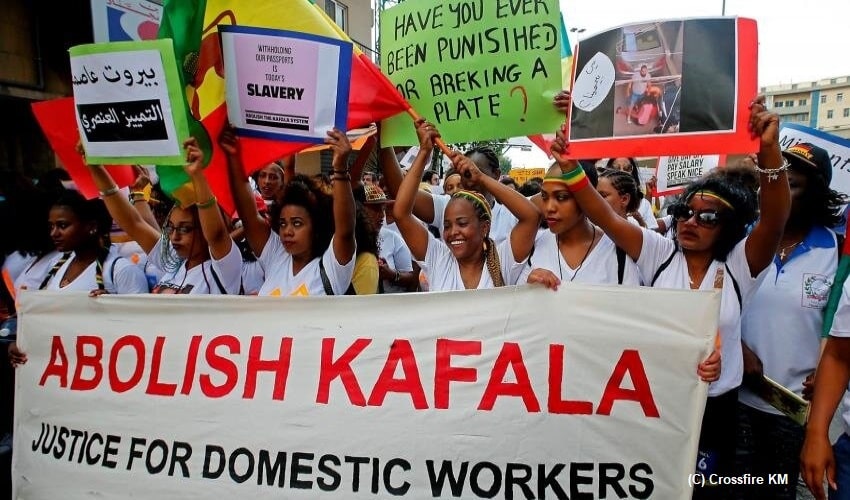

The kafala system has been implemented on migrant workers in the Gulf nations for quite a long time. It has been condemned internationally and locally and called a type of modern slavery.
As per reports, the Saudi regime is looking forward to abolishing the controversial Kafala labor system in 2021. Under the system, nearly 10 million migrant laborers’ legal status lies in the hands of their managers. Employers exploit the rights of the workers by forcing them to work extra hours, paying them low wages, and providing less leave.
On Tuesday, Maaal reported via anonymous sources that Riyadh would declare the abolition of the Kafala system one week from now. The Human Rights Watch (HRW) has many times criticized the system as exploitative and a form of modern slavery.
The kafala system has been implemented on migrant workers in the Gulf nations for quite a long time. It has been condemned internationally and locally and called a type of modern slavery. Many financial experts debate that it is an imbalanced labor market, where private businesses employ less expensive laborers since Saudi joblessness is increasing.
Foreign workers are bind to their sponsor for permission on changing jobs, opening a bank account, or ask to leave the nation. Many neighboring nations have found a way to reform the kafala labor system without fully ceasing it.
If Saudi Arabia abolishes the kafala system, it would have to end five key components that render companies power over migrant laborers’ lives.
The system provides power to the employers to make sure about and restore migrant workers’ residency and work permits and cancel them whenever needed.
The laborer has to obtain a permission letter from their employer if they want to leave or change their job. If an employer reports that their laborer is missing, which means the worker consequently gets undocumented and can be detained, arrested, or deported. Requiring a manager’s permission needs to end if a worker wish to leave the nation.
According to the HRW report, workers have no right to file a complaint or escape the exploitation, when their manager unduly control their entry and exit permit or hold their passports to restrict them from leaving the nation.
Many employers exploit this power by forcing them to work extra hours and deny them compensation. Specifically, migrant domestic workers are subjected to sexual and physical abuse by their employers.
The Kafala system has prompted a huge number of undocumented laborers, as managers can force them into modern slavery.
If Saudi Arabia is to end Kafala, it will require addressing all these components and guarantee that all migrant laborers’ rights are according to the International Labor Organization (ILO) standards. Most importantly, should no more be dependent on the mercy of any company or employer.
Article Credit: Human Rights Watch/ The Daily Star/ United Nations
Blockades on the borders of the country are to be put in place on April 28 if they do not…
After putting a 12% import tax on steel items for 200 days the Indian steel sector begins its path to…
To resolve the deepening crisis of Afghanistan, which is the displacement of local people as the migrants, a collaborative meeting…
The HSR project to connect Kuala Lumpur and Singapore creates better transportation for all regional areas in Malaysia. Government records…
Scottish Water staff started their 48-hour work strike at midnight due to their escalating pay negotiation problems with the organization.…
The Trump administration has selected Kansas City as its main destination to test federal workforce reduction measures. Through the leadership…
This website uses cookies.
Read More